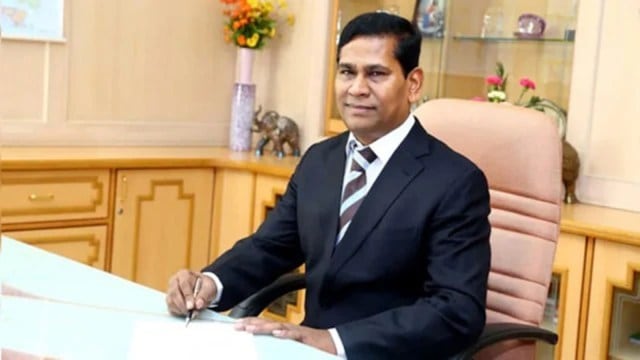In a significant order that could prompt a rethink by probe agencies before they seek to confiscate mobile phones or laptops of citizens for alleged crimes, the Supreme Court has restrained the Enforcement Directorate (ED) from accessing and copying content from electronic devices seized during searches conducted on “lottery king” Santiago Martin, his relatives and employees in November.
The searches were conducted by the ED in 22 places in six states following a complaint by Meghalaya Police, which alleged that Future Gaming and Hotel Services Private Limited had “illegally” captured the lottery business in the state. The searches had yielded Rs 12.41 crore in cash.

Santiago Martin’s company Future Gaming was the single largest donor of electoral bonds, having purchased Rs 1,368 crore in bonds between 2019 and 2014. It donated across party lines — Trinamool Congress was its biggest beneficiary at Rs 542 crore, DMK came a close second at Rs 503 crore. YSR Congress redeemed Rs 154 crore and BJP Rs 100 crore.
The two-page order, passed by Justices Abhay S Oka and Pankaj Mithal on December 13, ordered that the Future Gaming case be “heard along with other connected cases”. The four cases listed in Future Gaming’s petition include those filed by employees of Amazon India challenging ED’s demands to produce their electronic devices and the Newsclick case, in which the petitioners are seeking guidelines from the Supreme Court on seizure of laptops and telephones by Delhi Police in 2023.
In their plea, the petitioners sought to “protect their Constitutional and fundamental rights, more particularly, the fundamental right of privacy”. “The information stored on personal digital devices is deeply intimate, personal and more revealing about an individual’s life that anything held at a physical place…,” they argued.
The Supreme Court order asked the ED “not to access and copy” the contents of the mobile phone of Santiago Martin and any of the long list of electronic devices belonging to his company’s employees. The judges also stayed the summons issued by the ED under the PMLA (Prevention of Money Laundering Act) “to the extent that they require the presence of the persons mentioned therein for the purpose of extraction of data stored in the respective digital devices”.
When asked about the restraining order, senior ED officials told The Indian Express it was “unprecedented”, but not a major setback since they had “other significant material evidence” against Martin in the case. They pointed out that they were following the guidelines of the CBI Manual on Search and Seizure of Digital Evidence.
Story continues below this ad
According to the officials, ED had recently attached properties valued at Rs 622 crore linked to the Future Gaming group. Besides, the ED had several other important ongoing cases against Santiago Martin and Future Gaming, they said.
The petition filed by Future Gaming lists 12 categories of electronic devices seized during the ED search. These include 17 mobile phones (mostly with dual SIMs), hard disks of computers with “data dumps”, pen drives and back-up of some emails seized from Martin, his family members and senior staff members.
Lawyer Rohini Musa, who filed the 234-page petition, told The Indian Express that the Supreme Court order could become an important precedent for other ongoing cases. “The first thing is the Supreme Court has not given a date for the restraint against the ED to be lifted. The other thing is besides the infringement of fundamental rights and the rights of privacy, it should be ensured the ED does not embark on a fishing expedition, and does not force the petitioner (Santiago Martin) to incriminate himself in this and other cases via the material found in the electronic devices.”
The petition says that “at present, there was no procedure prescribed for such unrestricted seizures of devices and subsequent unlimited access to the same, leading to a possible fishing or roving inquiry.” Also, the nature of information on mobile phones would include “sensitive personal information” such as financial details, medical records, passwords, and seized devices would also contain business data, strategy documents and so on.
Story continues below this ad
The company lawyers, including former Attorney General Mukul Rohatgi, have also informed the Supreme Court in their plea seeking interim relief that Future Gaming has, till date, paid GST to the tune of Rs 28,205 crore in connection with the business of running state-operated lotteries.









